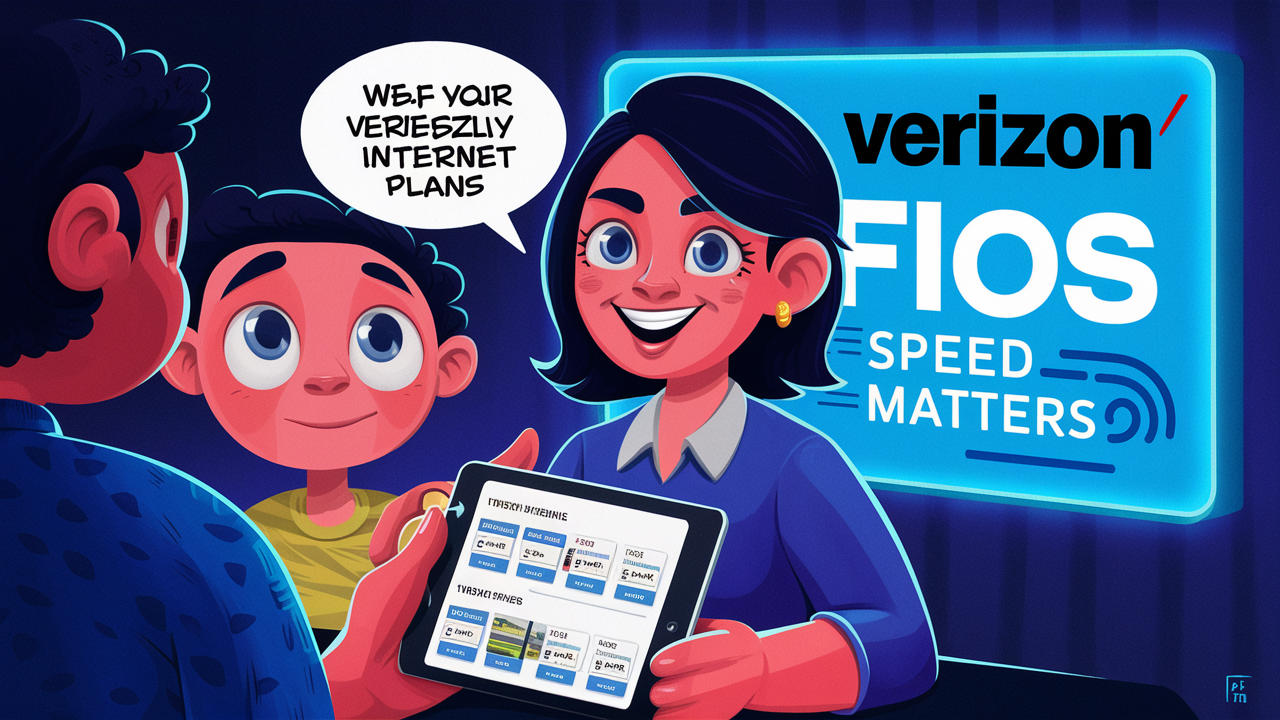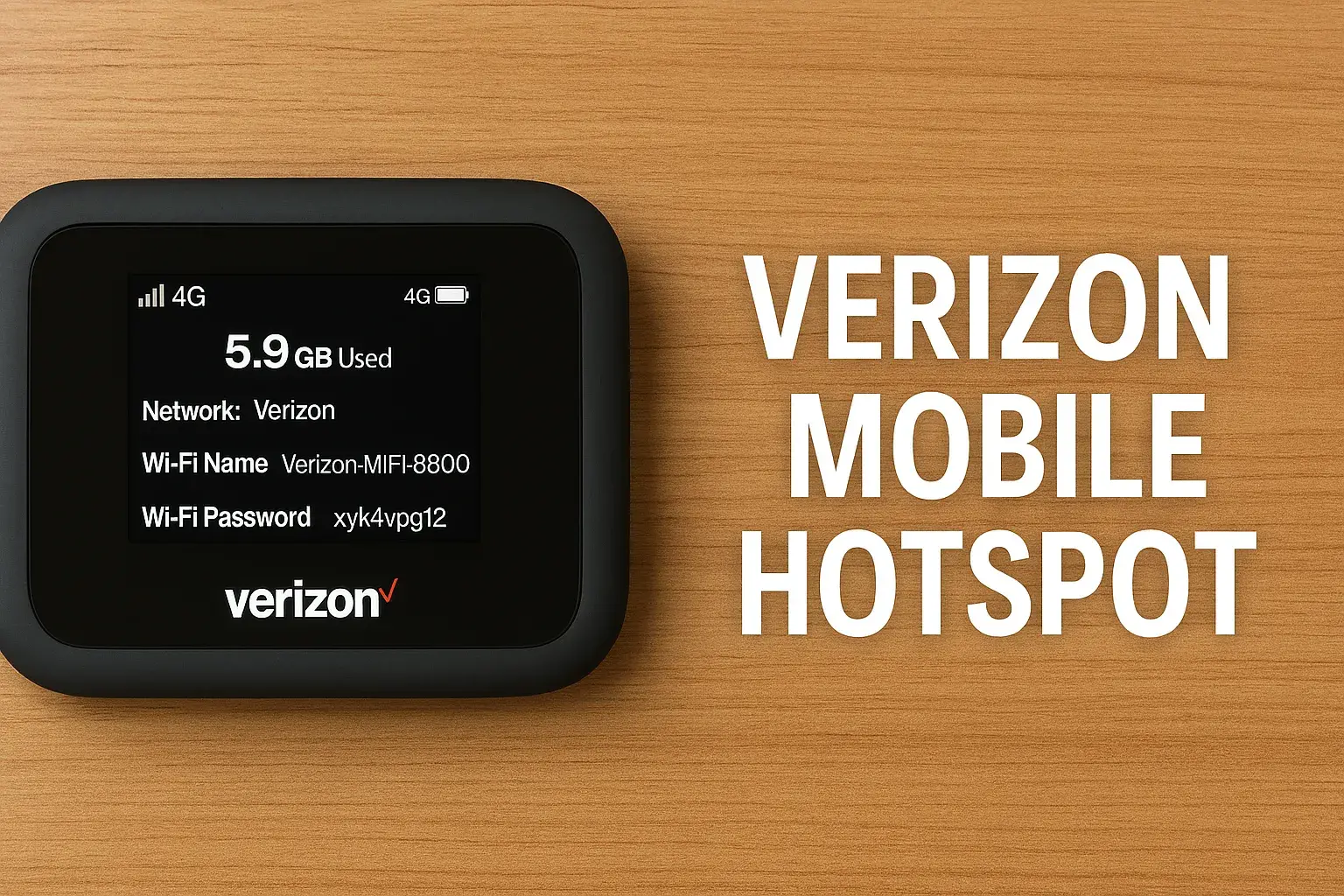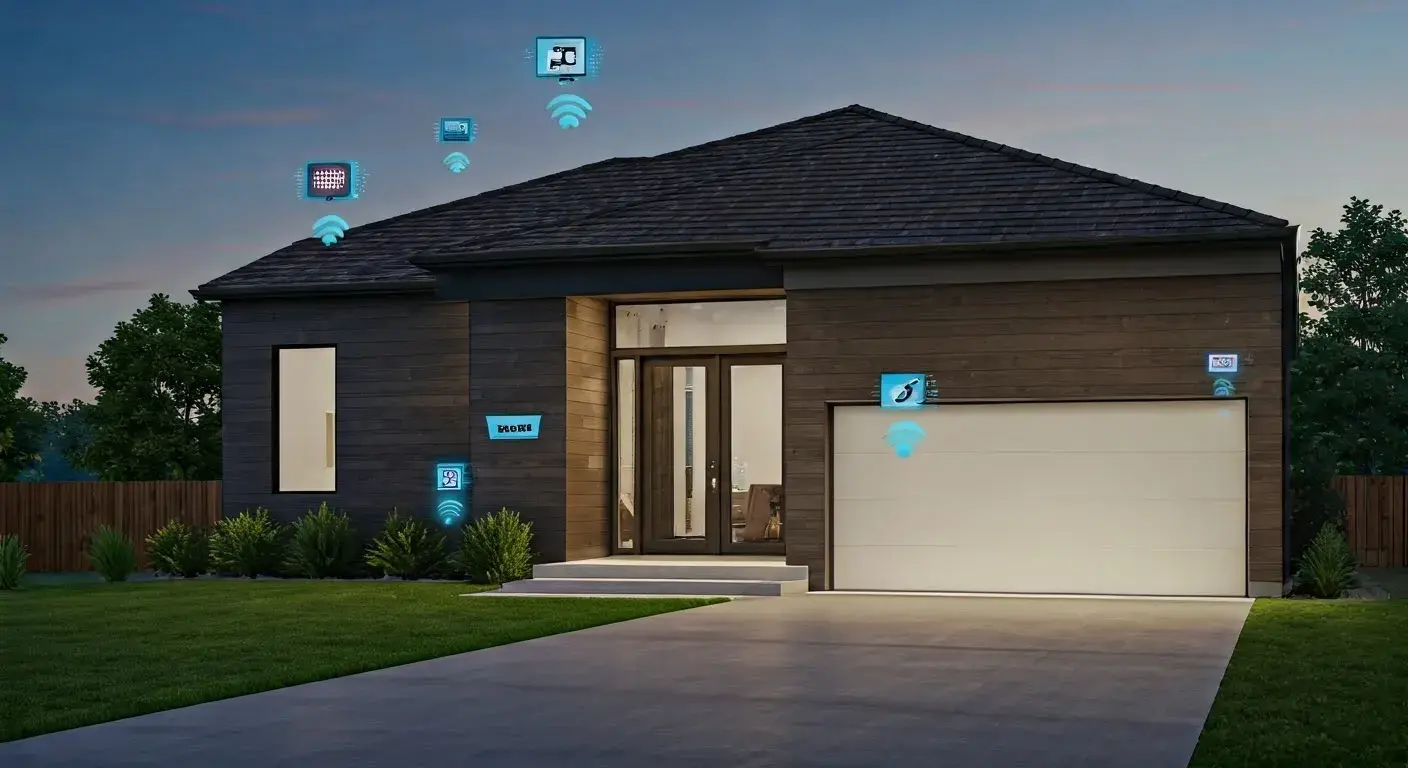How Much For Verizon Fios Internet?

Discover the true cost of Verizon Fios internet plans in 2025. This comprehensive guide breaks down pricing, speeds, and hidden fees, empowering you to find the best value for your home. Get the answers you need to make an informed decision about your Fios connection.
Understanding Verizon Fios Pricing Structure
When asking "How much for Verizon Fios internet?", it's crucial to understand that the price isn't a single, static number. Verizon Fios pricing in 2025 is a dynamic system influenced by several variables. Unlike some competitors who might have a single advertised price with aggressive throttling or data caps, Fios typically offers more transparent pricing, especially for its fiber optic services. The core components of your Fios bill will include the base monthly charge for your chosen internet speed tier, potential equipment rental fees, taxes, and any promotional discounts that may be applied. It's also important to distinguish between advertised prices and the actual cost after these factors are considered. Many providers, including Verizon, often advertise introductory rates that are valid for a limited time, after which the price will revert to the standard rate. Understanding these nuances is the first step to accurately budgeting for your Fios internet service. We'll delve into the specifics of these plans and costs throughout this guide.
Verizon Fios Internet Plans and Costs (2025)
Verizon Fios offers a range of internet-only plans designed to cater to different user needs and budgets. The primary differentiator between these plans is the download and upload speed. Fiber optic internet, like Fios, is known for its symmetrical speeds, meaning your upload speed is as fast as your download speed, which is a significant advantage for activities like video conferencing, online gaming, and uploading large files.
As of 2025, here's a general overview of typical Fios internet plans and their estimated pricing. It's important to note that these prices can vary based on your specific location, availability, and ongoing promotions. Always check Verizon's official website for the most accurate, up-to-date pricing for your address.
Fios 300 Mbps Internet
This plan is often positioned as an excellent entry-level option for many households. It provides enough speed for everyday internet activities such as browsing, streaming HD content on multiple devices, social media, and moderate online gaming.
- Speed: Up to 300 Mbps download and 300 Mbps upload.
- Estimated Monthly Cost (2025): Typically ranges from $49.99 to $69.99 per month.
- Ideal for: Small to medium-sized households with moderate internet usage, streaming in HD, and basic online activities.
Fios 500 Mbps Internet
Stepping up in speed, the 500 Mbps plan is a popular choice for households that require more bandwidth. This plan can comfortably handle simultaneous streaming in 4K, more demanding online gaming, and support for a larger number of connected devices.
- Speed: Up to 500 Mbps download and 500 Mbps upload.
- Estimated Monthly Cost (2025): Generally falls between $69.99 and $89.99 per month.
- Ideal for: Medium to large households, heavy streamers (4K), serious gamers, and users with many smart home devices.
Fios Gigabit Connection
This is Verizon's top-tier internet-only offering, providing the fastest speeds available through Fios. It's designed for power users, large families with extensive simultaneous usage, and businesses operating from home that require the highest levels of performance and responsiveness.
- Speed: Up to 940 Mbps download and 940 Mbps upload (often referred to as "Gigabit").
- Estimated Monthly Cost (2025): Usually priced between $89.99 and $109.99 per month.
- Ideal for: Households with very high internet demands, multiple 4K streamers, professional gamers, content creators, and those who need to download/upload massive files quickly.
Important Considerations for 2025 Pricing:
- Promotional Pricing: Many advertised prices are introductory rates valid for 12-24 months. After this period, the price will increase to the standard rate. Always confirm the duration of any promotional offer.
- No Annual Contracts: Verizon Fios often emphasizes no annual contracts for internet-only plans, offering flexibility. However, this can sometimes mean slightly higher standard rates compared to providers with mandatory contracts.
- Equipment Rental: While some plans might include a basic router, others may charge a monthly fee for equipment rental. We'll cover this in more detail later.
- Taxes and Fees: The advertised price rarely includes all applicable taxes, surcharges, and regulatory fees, which can add a significant amount to your monthly bill.
Checking Fios Availability
The first and most critical step in determining "how much for Verizon Fios internet?" is to check if Fios is even available in your area. Fios is a fiber-optic network, and its availability is limited to specific regions, primarily in the Northeastern and Mid-Atlantic United States. You can easily check availability on the Verizon Fios website by entering your address. If Fios is not available, you'll need to explore other internet service providers in your region.
Key Factors Influencing Your Fios Bill
Beyond the advertised speed tier, several other factors can significantly impact the final price you pay for Verizon Fios internet. Understanding these will help you accurately estimate your monthly expenditure and avoid surprises.
1. Speed Tier Selection
As detailed above, the most direct determinant of your monthly cost is the speed tier you choose. Higher speeds naturally come with a higher price tag. The key is to select a speed that meets your household's needs without overpaying for capacity you won't utilize. For instance, if you're a single person or a couple with light internet usage, the 300 Mbps plan might be perfectly adequate and significantly cheaper than the Gigabit plan.
2. Promotional Offers and Discounts
Verizon frequently runs promotional offers to attract new customers. These can include discounted monthly rates for the first 12 or 24 months, waived installation fees, or bundled discounts. These promotions are excellent for reducing your initial costs, but it's vital to be aware of when the promotional period ends and the price will increase to the standard rate. Keep an eye out for:
- New Customer Discounts: Often the most aggressive pricing.
- Bundled Service Discounts: Savings when combining internet with TV or phone.
- Auto-Pay and Paperless Billing: Small monthly discounts may be available.
- Autonomy Discounts: For Verizon mobile customers, there might be additional perks.
3. Equipment Rental Fees
While Fios often provides a high-quality router (often referred to as the Fios Home Wi-Fi Router or Fios Quantum Gateway), there might be a monthly rental fee associated with it. In 2025, this fee can range from $10 to $15 per month. Some plans might include the router at no extra charge, especially during promotional periods or for higher-tier plans. You also have the option to purchase your own compatible router to avoid these monthly fees, though you'll need to ensure it meets Verizon's specifications.
4. Taxes, Surcharges, and Fees
This is a common area where advertised prices differ from the actual bill. Government taxes, state surcharges, and Verizon's own administrative fees will be added to your monthly bill. These vary by location but can add anywhere from 10% to 25% or more to the base price of your service. It's impossible to predict the exact amount without knowing your specific address and local tax rates, but it's a factor that consistently increases the "how much for Verizon Fios internet?" answer.
5. Installation Costs
New Fios installations typically require a technician visit to set up the fiber optic network to your home. While Verizon often offers free installation or heavily discounted installation fees as part of promotional packages, standard installation charges can range from $99 to $150 if no promotion is active.
6. Contract Terms (or lack thereof)
Verizon Fios internet-only plans are generally contract-free. This offers great flexibility, allowing you to cancel or switch providers without early termination fees. However, providers that require annual contracts might offer a slightly lower monthly rate in exchange for that commitment. When comparing prices, consider the long-term commitment versus the flexibility.
How Fios Compares to Other ISPs
Understanding how Verizon Fios pricing stacks up against competitors is essential for making an informed decision. Fios primarily competes with cable internet providers (like Spectrum, Xfinity) and other DSL or fixed wireless providers.
Fios vs. Cable Internet (e.g., Xfinity, Spectrum)
- Speed: Fios offers symmetrical upload and download speeds, which is a significant advantage over most cable providers whose upload speeds are considerably slower (often 1/10th or less of download speeds). For users who upload content, video conference extensively, or use cloud storage, this is a major differentiator. Cable providers are improving their upload speeds, but Fios generally leads in this regard for comparable price points.
- Pricing: Advertised prices can be similar, but Fios often has fewer hidden fees or less aggressive price hikes after initial promotions. However, cable providers might offer lower entry-level prices for very basic plans. The "true cost" after fees and equipment rental can make Fios more competitive than it initially appears.
- Reliability: Fiber optic cables are generally more resilient to weather and interference than coaxial cables used by cable companies, potentially leading to more consistent service.
- Data Caps: Fios is known for having no data caps on its internet plans. Many cable providers, on the other hand, impose data caps, and exceeding them can result in extra charges or speed throttling. This makes Fios a more predictable expense for heavy internet users.
Fios vs. DSL and Fixed Wireless
- Speed: Fios' fiber optic technology offers vastly superior speeds and lower latency compared to DSL, which relies on older telephone lines and is significantly slower. Fixed wireless can offer decent speeds but is highly dependent on signal strength and line of sight, and often lacks the consistent performance of fiber.
- Pricing: DSL and fixed wireless plans are often cheaper, especially for lower speed tiers. However, the performance difference is substantial. If you need reliable high speeds, Fios is a clear winner.
- Reliability: Fios is generally more reliable than fixed wireless, which can be affected by weather and obstructions. DSL reliability is often limited by the distance from the central office.
In summary, while Fios might not always be the absolute cheapest option upfront, especially for the lowest speed tiers, its symmetrical speeds, lack of data caps, and generally reliable performance often provide better overall value for users who demand more from their internet connection. When asking "how much for Verizon Fios internet?", consider the value proposition beyond just the monthly dollar amount.
Hidden Fees and What to Watch Out For
To truly answer "how much for Verizon Fios internet?", you must account for potential hidden fees that can inflate your monthly bill. While Verizon Fios is generally more transparent than some competitors, it's still important to be aware of these costs.
1. Equipment Rental
As mentioned, the Fios Home Wi-Fi Router or Fios Quantum Gateway may come with a monthly rental fee. In 2025, this can be around $10-$15 per month. If you plan to use your own compatible router, ensure you understand Verizon's requirements to avoid compatibility issues. Buying your own router can save you significant money over the life of your service.
2. Installation Fees
While often waived as a promotion, standard installation fees can be substantial ($99-$150). Always check if installation is included in the advertised price or if it's an additional charge.
3. Late Fees
Like any utility service, failing to pay your bill on time will incur late fees. Ensure you set up auto-pay or calendar reminders to avoid these.
4. Service Call Fees
If a technician needs to visit your home for issues that are determined to be customer-caused (e.g., damage to equipment you own, incorrect setup of your own router), you might be charged a service call fee.
5. Early Termination Fees (ETFs)
While Fios internet-only plans are typically contract-free, if you sign up for a bundled package that includes TV or phone with a specific term agreement, ETFs may apply if you cancel early. Always read the fine print regarding contract terms.
6. Price Increases After Promotions
This isn't technically a "hidden fee," but it's a predictable price increase that often catches customers off guard. If a plan is advertised at $49.99 for 12 months, understand that it will likely jump to a higher standard rate (e.g., $70-$80) after that period. Factor this future increase into your long-term budget.
7. Taxes and Surcharges
These are unavoidable and vary by location. They include federal, state, and local taxes, as well as various regulatory fees. While not "hidden," their cumulative effect can significantly increase the final bill. Always estimate an additional 15-25% on top of the advertised price to account for these.
Tip: When speaking with a Verizon sales representative, always ask for a full breakdown of all monthly charges, including taxes, fees, and equipment costs, before committing to a plan. Ask specifically about any potential price increases after promotional periods.
Verizon Fios Installation and Equipment Costs
The initial setup of your Verizon Fios service involves installation and potentially acquiring necessary equipment. Understanding these costs upfront is crucial for budgeting.
Installation Process
Fios installation requires a professional technician to run fiber optic cable to your home and set up the necessary equipment, including the Optical Network Terminal (ONT) which converts the optical signal to electrical.
- Standard Installation Fee (2025): If not covered by a promotion, expect this to be in the range of $99 to $150.
- Promotional Installation: Verizon frequently offers free installation or heavily discounted rates (e.g., $49, $69) as part of new customer packages.
- Self-Installation: In some limited cases, if Fios infrastructure is already present and active at your location, a self-installation kit might be an option, potentially saving on fees. However, this is less common for new fiber deployments.
Equipment Options
You'll need a router to broadcast your Wi-Fi signal. Verizon offers its own branded routers.
- Fios Home Wi-Fi Router / Fios Quantum Gateway: These are Verizon's proprietary routers.
- Rental Fee (2025): Typically $10 to $15 per month. Some plans or promotions may include this for free.
- Purchase Option: You can usually purchase these routers outright from Verizon, but it's often more expensive than renting over the long term.
- Using Your Own Router: You have the option to use your own compatible router. This can save you the monthly rental fee.
- Compatibility: Ensure your router supports the speeds you're subscribing to and meets Verizon's technical specifications. You'll typically need a router with a Gigabit Ethernet WAN port.
- Setup: You will be responsible for setting up and managing your own router.
- Modem/ONT: The ONT is provided by Verizon and is essential for the fiber connection. It is typically not something you rent or purchase separately; it's part of the service installation.
Example Scenario: If a plan is advertised at $69.99/month with a $15/month equipment rental fee and a $99 installation fee, your initial costs would be the installation fee plus your first month's service. Over 12 months, the total cost would be ($69.99 + $15) * 12 + $99 = $1019.88. If installation was free and you used your own router (saving $15/month), the cost would be $69.99 * 12 = $839.88, a saving of nearly $180 in the first year.
Bundle Options and Potential Savings
Verizon Fios offers more than just internet. You can bundle Fios Internet with Fios TV and/or Fios Home Phone services. Bundling can often lead to savings compared to purchasing services individually.
Common Bundle Tiers
Verizon typically structures bundles to offer a combination of speed, channel packages, and phone features.
- Internet + TV: This is the most common bundle. You can choose from various TV channel packages, from basic essentials to premium sports and entertainment.
- Internet + TV + Phone: For customers who still utilize a landline or want the convenience of a bundled communication package.
Potential Savings with Bundles
When you bundle, Verizon often provides a discount on the total package price. These savings can be significant, especially for higher-tier plans or more comprehensive TV packages.
- Advertised Bundle Prices: Look for bundle deals advertised on Verizon's website. For example, a bundle might be advertised as "$129.99/month for 500 Mbps Internet + Select TV + Unlimited Phone."
- Discounted Rates: The bundled price is usually lower than the sum of individual service prices. This can range from $10 to $30 or more per month in savings.
- Promotional Bundles: Similar to internet-only plans, bundles often come with introductory discounts for the first 12-24 months.
Considerations for Bundling
- Do You Need All Services? Only bundle if you genuinely need and will use all the services included. Paying for a premium TV package you rarely watch negates the savings.
- Contract Terms: Bundles, especially those including TV, may sometimes come with a contract term (e.g., 1 or 2 years). This can lock you into a price but also incurs early termination fees if you cancel.
- Flexibility: If your needs change, unbundling services might be more complex or costly than initially anticipated.
- Equipment for TV: Bundling with TV will require additional equipment like set-top boxes, which may also have rental fees.
Example: A 500 Mbps internet plan might cost $79.99/month. A basic TV package might cost $70/month. Individually, this is $149.99/month. A bundle offering both might be priced at $129.99/month, saving you $20 per month. However, this bundled price might be an introductory rate, and the standard rate could be higher. Always verify the standard pricing after promotions end.
Data Caps and Throttling: What You Need to Know
One of the most significant advantages of Verizon Fios internet is its approach to data usage.
Fios and Data Caps
Verizon Fios internet plans are known for having **no data caps**. This means you can use as much internet data as you need without worrying about incurring overage charges or having your speeds throttled after reaching a certain limit. This is a major selling point for heavy internet users, including:
- Families with multiple users streaming video (4K included) simultaneously.
- Gamers who download large game files frequently.
- Remote workers who upload and download large files.
- Users who rely heavily on cloud storage services.
- Smart home enthusiasts with numerous connected devices.
This lack of data caps contributes to a more predictable monthly bill and a better overall user experience, as you don't have to constantly monitor your data consumption.
Throttling
Throttling refers to the intentional slowing down of your internet speed by the Internet Service Provider (ISP). This can happen for various reasons, including:
- Data Cap Exceedance: Many ISPs throttle speeds once a customer hits their monthly data limit.
- Network Congestion: During peak hours, some ISPs might throttle speeds to manage network traffic, especially for lower-tier plans or users who have exceeded data allowances.
- Service Tier Limitations: Your speed is inherently limited by the plan you subscribe to.
Because Fios does not have data caps, you are unlikely to experience throttling due to data usage. Your speeds will be consistent with the plan you have subscribed to, provided your equipment and home network are performing optimally. This reliability in speed is a key benefit of Fios fiber optic technology.
Comparison to Competitors: Many cable internet providers (like Xfinity and Spectrum) do impose data caps, often around 1TB per month. Exceeding this can lead to extra charges or throttled speeds. This makes Fios a superior choice for users who consume a lot of data.
Beyond Price: Fios Customer Service and Reliability
While the question "How much for Verizon Fios internet?" focuses on cost, it's essential to consider the overall value, which includes customer service and service reliability. These factors significantly impact your day-to-day experience and can indirectly affect your costs through fewer service calls or less downtime.
Service Reliability
Verizon Fios, being a fiber-optic network, is generally considered highly reliable. Fiber optics are less susceptible to:
- Weather Interference: Unlike coaxial cable (used by cable companies) or copper lines (used by DSL), fiber is not affected by rain, snow, or lightning.
- Electromagnetic Interference: Fiber optic cables are immune to interference from other electrical devices.
- Signal Degradation: Fiber can carry signals over much longer distances without significant loss of quality compared to copper.
This translates to more consistent speeds and fewer service interruptions. Independent studies and customer reviews often rank Fios highly for reliability. For 2025, Fios continues to be a benchmark for dependable internet connectivity.
Customer Service
Customer service experiences can vary, but Verizon generally receives mixed to positive reviews for its Fios support.
- Online Resources: Verizon offers extensive online support, including FAQs, troubleshooting guides, and account management tools.
- Phone Support: Representatives are available for technical assistance and billing inquiries. Wait times can fluctuate.
- Chat Support: Live chat options are often available for quicker, less intensive queries.
- Technician Service: When a technician visit is required, Fios technicians are generally well-regarded for their professionalism and efficiency.
When evaluating "how much for Verizon Fios internet?", consider that a reliable service with good support can save you frustration and potential costs associated with downtime or unresolved issues. While no provider is perfect, Fios often provides a robust and dependable service that justifies its price point for many users.
Maximizing Value: Tips for Getting the Best Fios Deal
To ensure you're getting the best possible price and value for Verizon Fios internet, follow these strategic tips. These will help you navigate pricing and promotions effectively.
1. Always Check for Promotions
Verizon frequently offers introductory discounts, waived fees, and other incentives for new customers. Visit their official website or speak directly with a sales representative to inquire about current deals. These promotions can significantly reduce your monthly bill for the first 12-24 months.
2. Compare Speed Needs Accurately
Don't overpay for speed you don't need. Assess your household's typical internet usage.
- Light Users (1-2 people, basic browsing, email, occasional streaming): 300 Mbps might be sufficient.
- Moderate Users (2-4 people, frequent streaming, online gaming, video calls): 500 Mbps is often ideal.
- Heavy Users (5+ people, multiple 4K streams, large file transfers, professional use): Gigabit is recommended.
Choosing the right tier avoids unnecessary monthly costs.
3. Consider Your Own Router
The monthly equipment rental fee for Verizon's router can add up. If you're comfortable with technology, purchasing a compatible third-party router can save you $10-$15 per month, which amounts to $120-$180 annually. Ensure the router meets Fios' technical requirements.
4. Leverage Bundling Wisely
If you also need TV or phone service, bundling can offer savings. However, only bundle if you will genuinely use all the services. A Fios Internet + TV bundle might be more cost-effective than separate services, but only if you'll watch the TV channels included.
5. Look for Auto-Pay and Paperless Billing Discounts
Verizon often provides small monthly discounts for enrolling in auto-pay and paperless billing. While not huge savings, every bit counts towards reducing your overall bill.
6. Inquire About Verizon Mobile Discounts
If you are a Verizon mobile customer, ask about potential discounts or perks for bundling Fios internet with your mobile plan. These "Get More" or similar programs can offer added value.
7. Negotiate (When Possible)
While Fios pricing is generally standardized, sometimes, especially if you are a long-term customer or considering switching to a competitor, you might be able to negotiate better terms or a retention offer. This is more common when your promotional period is ending.
8. Understand the "True Cost"
Always ask for the total monthly cost, including all taxes, fees, and equipment charges, before signing up. Be aware of when promotional pricing ends and what the standard rate will be. This comprehensive understanding is key to maximizing value.
By strategically applying these tips, you can effectively answer "how much for Verizon Fios internet?" for your specific situation and ensure you're getting the best possible deal.
Conclusion
The question "How much for Verizon Fios internet?" doesn't have a single, simple answer, as pricing is influenced by speed tiers, promotions, equipment, and regional fees. In 2025, expect Fios internet-only plans to range from approximately $49.99 for 300 Mbps to $89.99+ for Gigabit speeds, before taxes and potential equipment rental fees. The key to finding the best value lies in understanding Verizon's pricing structure: always check for current promotions, accurately assess your speed needs to avoid overpaying, and consider the long-term savings of using your own router. While Fios may not always be the cheapest upfront option, its symmetrical speeds, lack of data caps, and high reliability offer a superior user experience that often justifies the cost, especially when compared to competitors. By leveraging bundling options wisely and being aware of all potential charges, you can secure a dependable and high-performing internet connection that meets your household's demands without breaking the bank. Always verify pricing for your specific address and factor in the impact of taxes and fees for a true understanding of your monthly bill.





